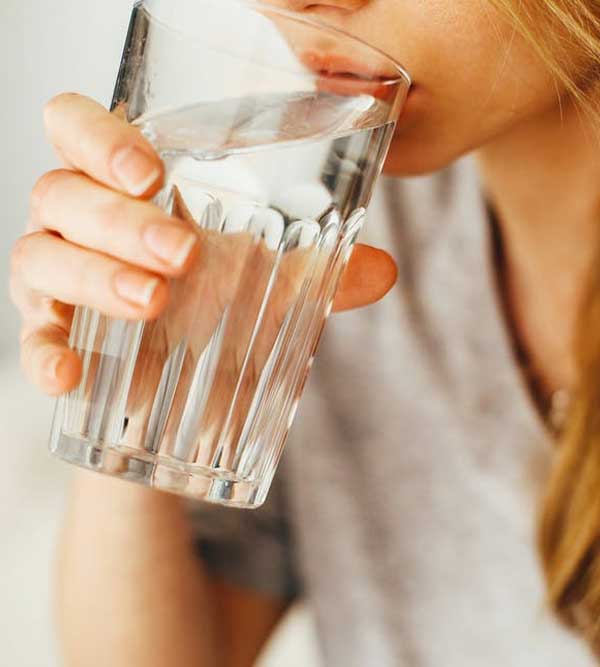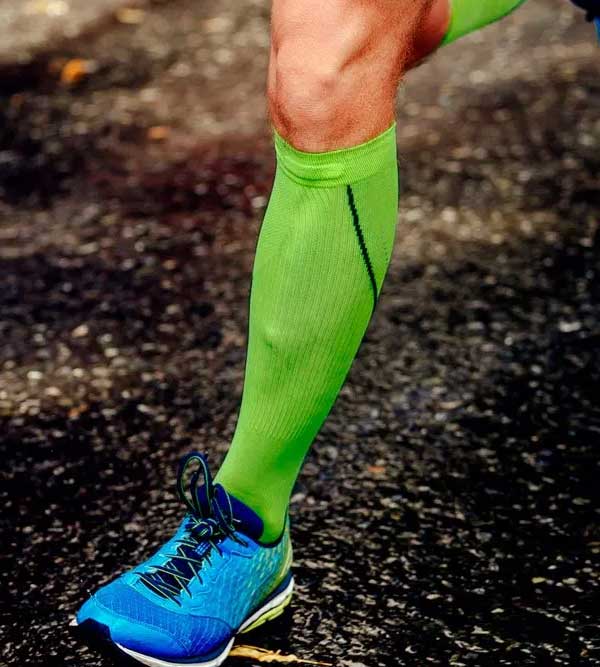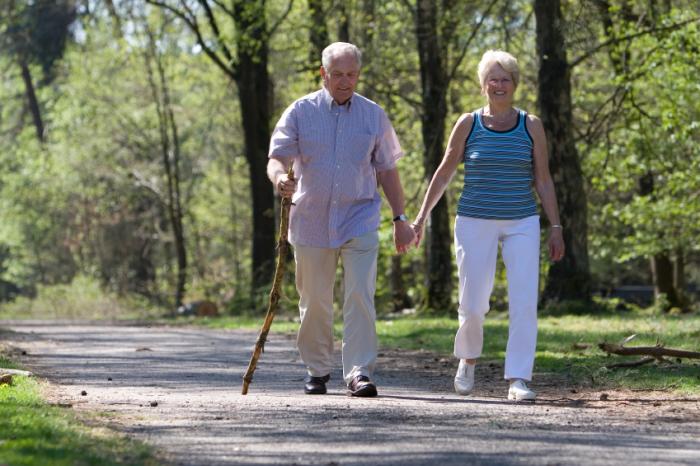7 Tips for Healthier Veins (2020 Update)
Your veins don’t get enough attention. You might only think of them when you see them bulging after a tough workout or when you find a varicose vein forming on your leg.
We think your veins deserve more attention. After all, veins are the “highway” through which blood flows back to your heart!
Did you know that you have about 60,000 miles of vasculature? That’s arteries, veins, and capillaries carrying blood and nutrients to every corner of your being!
Like a highway, when there’s a blockage, its traffic can slow to a crawl or even stop – which can be catastrophic!
Fortunately, you’re in the driver’s seat. You have the power to follow these 7 easy tips we have compiled to help keep your blood flowing and your veins healthy. Drive on!
1. Learn to love cardio
You don’t have to train for the Whiskey Row Marathon, but we do recommend that you find something you enjoy that will help you stay moving.
Not only does cardiovascular exercise promote healthy blood flow and strong veins, but it can help you avoid weight gain, which can strain the vessels in your lower body.
Try these basic exercises:
- Go on a brisk walk – Walking can boost your overall health and help prevent vein disease. Walking is a great place to start.
- Run or hike at an even pace with supportive shoes – These workouts get your heart rate up as they build your muscles.
- Go swimming – Swimming is a great resistance exercise that works out multiple muscle groups at once.
- Go on a bike ride – Biking is another good choice for lower body strengthening.
- Any exercise that will get your heart rate up for about 30 minutes a day 5 days out of the week will give you the most benefit – This can help keep blood from pooling and prevent spider veins.
2. Drink plenty of water

When your body is properly hydrated, it not only works more efficiently, but your blood becomes thinner and flows more easily through your veins.
Add these steps to your daily routine:
- Drink water throughout the day – Buy a water bottle and keep it with you wherever you go. Set a timer to remind you to drink if you have trouble remembering to drink.
- Drink water before you go to sleep at night and when you wake up – the amount of time you sleep is time without water intake.
- Drink extra water when you exercise or when you sweat to replenish your body – adequate hydration can greatly improve the effectiveness of your workout and recovery.
3. Eat the rainbow
It is tempting to eat pre-packaged meals or fast food when we are in a hurry. The strain these foods put on our vascular system is enormous and not worth the convenience in the long run.
On the other hand, fresh fruits and vegetables, especially those rich in vitamins C and K, can contribute to the health of your vein walls, improve vein diameter and circulation.
They provide nutrients like vitamins and dietary fiber that help your body stay healthy and heal quicker from injuries! The brighter the fruits and vegetables, the better for your veins.
These delicious additions to your diet are full of antioxidants that provide wonderful benefits. Prevent vein disease and strengthen your vein walls by eating these:
- Vegetables high in vitamins C and K – These include red peppers, collard greens, asparagus, cauliflower, spinach, carrots, avocado, broccoli, kale, and tomatoes to name a few.
- Fresh fruits rich in vitamins C and K – Kiwis, strawberries, oranges, blueberries, prunes, blackberries, and pomegranates.
- Certain foods such as avocados, for example, can be added to your diet to treat varicose veins.
4. Consider compression socks

If you’re susceptible to venous insufficiency, due to a hereditary condition, pregnancy, a chronic condition or lifestyle, compression socks can help our veins.
Compression socks are specially designed to apply pressure on the muscles around the veins to help blood flow more easily back up toward the heart. Improve your vein health now:
- Take a look online at medical-grade compression socks or “stockings” – You might be surprised at the popularity and the wide variety of stylish compression socks available.
- Take a cue from professional athletes who have begun to use these to aid them in recovery after or during sporting events – Share the success they experience while keeping your veins healthy.
- Work these tools into your regular wardrobe to get the full benefit of proper circulation and increased vein health!
5. Cut back on sugar
Sugar is delicious, addictive, and as it turns out, quite dangerous. Sugar-rich food and drinks, like soda, juice, cookies, and cereals taste good, but that’s not the whole story.
Once the food is digested, your body produces low-density lipoprotein, which can become oxidized and stuck to the walls of your blood vessels – forming what’s commonly called plaque.
As plaque builds up over time, it can lead to clotting, as well as high cholesterol – both of which can lead to problems with your veins, arteries, and heart.
Extra sugar also causes high blood pressure which is another common cause of varicose veins. Make these simple adjustments to create a healthy diet:
- Cut out sugary drinks like soda and juice – The quickest way to cut down on this dangerous sugar intake for many is to stop drinking soda.
- Eat more whole foods – When you trade processed and pre-packaged meals for fresh food the natural effect is a decrease in the unhealthy things you consume, including excess sugar.
6. Leave the heat behind
A long hot bath after a long hard day. A dip in the jacuzzi or a stay in the sauna. These might feel great and reduce pain for sore muscles, but over time, prolonged exposure to heat can actually increase vein swelling.
Vein swelling often leads to blood pooling which can cause varicose veins and spider veins to appear. Ultimately this can lead to venous insufficiency and blood clots.
Steps for healthy veins:
- Spend less time in high-heat showers or baths – Trade the hot for cool water for an even greater benefit as it can decrease inflammation to improve vein health.
- Limit how long or how often you spend in the jacuzzi or sauna – Remember that heat makes things swell.
7. Kick the (smoking) habit
Smoking isn’t good for you, you’ve heard that before, but it’s especially hard on your cardiovascular system. The chemicals in tobacco smoke deoxygenate and thicken the blood.
They also cause your blood flow to slow down. Nicotine also has the destructive effect of causing vascular hardening and narrowing. This greatly increases your risk of clotting – which can be deadly.
Opt for a healthy cardiovascular system and longer life:
- If you need help quitting, find a local or national program – Share the support of many who have quit before you.
- Make the decision to live better, longer, healthier!
Finally, if you notice symptoms of venous insufficiency, including swelling or heaviness in the lower leg or ankle, varicose veins, pain or itchiness, seek help from a vascular specialist who can provide the care you need.
For information on the services available at Vascular & Interventional Specialists of Prescott, visit vispdocs.com or call 928.771.8477.
Vascular & Interventional Specialists of Prescott was formed in 2010 by a group of subspecialty radiologists that perform numerous minimally-invasive, low-risk procedures using the tools of our trade for guidance—x-ray, ultrasound, CT scan, and MRI. The team’s goal is to educate patients and medical communities, while also providing safe and compassionate health care, with rapid recovery times and low risk of complications.

